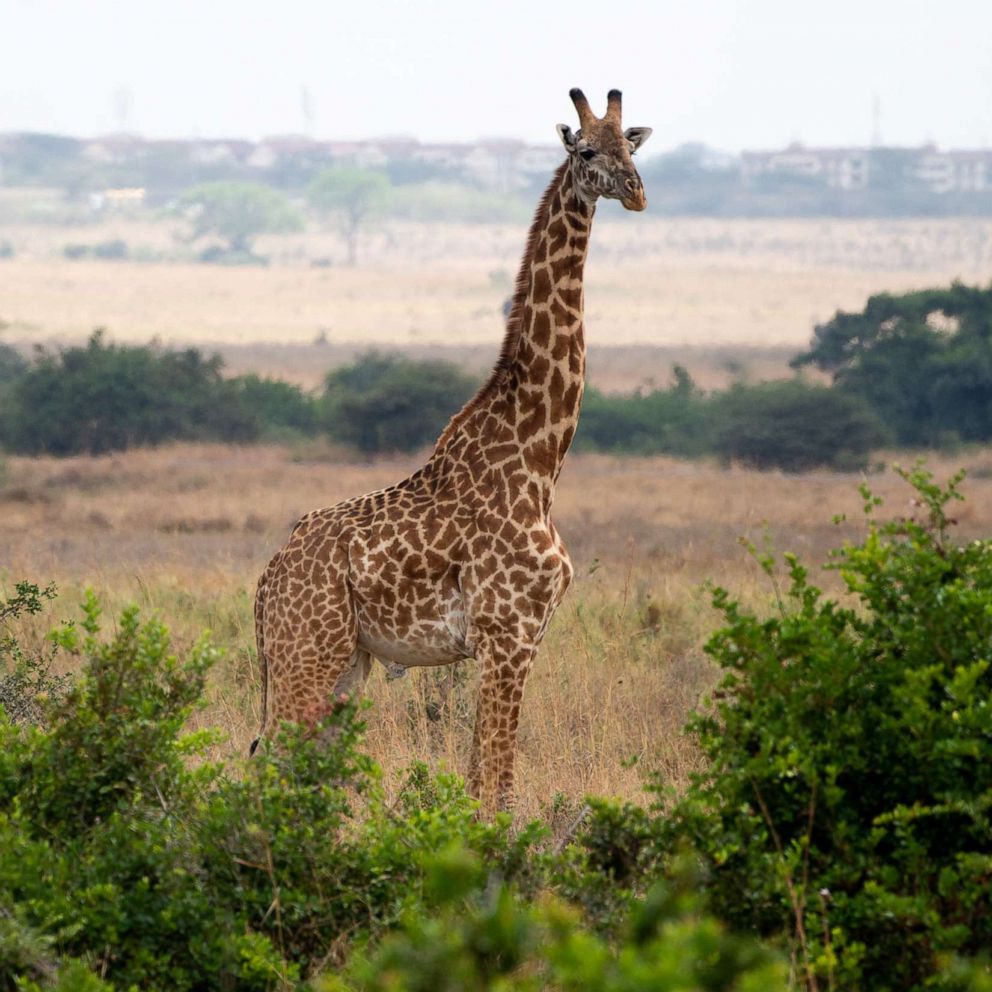


The Trump administration will look into officially listing giraffes as an endangered species, the U.S. Fish and Wildlife Service announced this week.
The agency announced that a preliminary review of a petition to protect the iconic animals found "substantial information" to support requests they should be listed as threatened or endangered. The government will now begin a closer review of the status of the current giraffe population around the world and threats to that population that may warrant legal protections.
Conservation groups like The Humane Society of the United States and Center for Biological Diversity filed the petition and subsequent lawsuit to force the government to move on the determination. They say giraffes are being illegally hunted for meat and trophies that are imported back to the United States.
Even though giraffes are not native to the U.S., listing them as endangered under federal law could allow the government to restrict imports of trophies from animals killed in Africa, similar to restrictions related to elephants or lions hunted abroad.
The largest international group focused on species conservation, the International Union for Conservation of Nature, listed giraffes as "threatened" in 2016 because the population declined an estimated 40 percent in 30 years. There were about 97,500 giraffes identified across Africa in 2015.
The group said human activity is threatening giraffe populations through illegal hunting, habitat loss, and conflict between animals and people.
The Trump administration controversially withdrew broad bans on the imports last year, but President Donald Trump quickly put the decision on hold amid public outrage.
The Fish and Wildlife Service has since instituted a new policy saying they will not issue a blanket ban but will evaluate each individual request to import trophies from African elephants, while ivory imports are still illegal.
(MORE: Does hunting elephants help conserve the species?)Groups like The Safari Club, a group of hunters that support conservation, say revenue from legal trophy hunts are used to support giraffe populations in countries where they live and listing them as endangered could actually reduce revenue for protections in countries like South Africa and Zimbabwe.
(MORE: Trump administration withdraws ban on elephant trophy permits)The U.S. Fish and Wildlife is expected to spend at least a year reviewing information on giraffe populations from its own experts and outside researchers and groups before recommending a decision on whether giraffes should be listed as threatened or endangered under the Endangered Species Act.